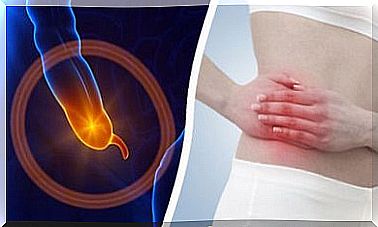Chronic Hiccups: Treatment Options
Chronic hiccups can affect many areas of life, including personal relationships and sleeping habits. Then learn more about this topic.

We all know what hiccups are from our own experience. The medical term for this unpleasant, but usually quickly temporary phenomenon is singultus. With every squabble, the diaphragm suddenly contracts, which leads to deep inhalation with the glottis closed. The result is the typical noise that we all know. Chronic hiccups, however, are far from funny because they have serious consequences for those affected.
Chronic hiccups is a rare disease. It is estimated that 1 in 100,000 suffers from it, with the hiccups repeating continuously for more than 48 hours. This can be a symptom of another illness, or it can be attributed to certain eating or drinking habits. It is important to identify and treat the underlying problems in order to put an end to this nasty illness.
Then learn more about this topic.
Chronic hiccups: possible triggers
As already mentioned, chronic hiccups manifests itself for days or weeks as continuous hiccups. In between there are also phases without symptoms. But most of them have seizures several times in a month.
Chronic hiccups usually arise as a result of another digestive system disease, often the esophagus or stomach, that are closely related to the diaphragm. For example, inflammation of the gullet (esophagitis) caused by reflux can be responsible.
Esophagitis caused by reflux can injure the esophagus as the acid builds up in the stomach and attacks the walls of the esophagus. Reflux can have a number of causes. It is often caused by poor nutrition, tobacco or tea that is too hot.
While chronic hiccups can have a variety of causes and affect anyone, men are more likely to suffer from them than women. Stress and nervousness often seem to be the triggering factors.

What other causes are possible?
Since chronic hiccups are caused by involuntary contractions of the diaphragm, a nerve injury affecting that muscle could also be responsible. A brain injury in the area responsible for this reflex could be the trigger.
The most common injuries to involuntary motor neurons result from meningitis and multiple sclerosis. However, chronic hiccups could also be a symptom of a brain tumor or the consequence of a stroke.
Injury to the nerves that carry the impulse to the diaphragm could also lead to chronic hiccups. We are talking about the phrenic nerves that connect the central nervous system to the abdominal muscle. They run over the neck and thorax, so pathologies in this area must be excluded.
Not to forget that chronic hiccups could also be a side effect of a drug or drug. Sometimes it happens after an anesthetic or after surgery. In addition, it has been observed that alcohol addicts or drug addicts sometimes suffer from it.

Chronic hiccups: treatment options
Treatment for this disorder depends on the underlying causes. In the case of reflux, for example, it is important to find out what causes it and treat it. Antacids are often used to regulate the pH of the stomach.
Some drugs have also been shown to be beneficial in treating chronic hiccups. For example, chlorpromazine and metoclopramide help in an indirect way. The former is usually used as an antipsychotic, while the other is used to relieve nausea.
If nothing helps, there is also the possibility of surgical intervention. The phrenic nerves are blocked in order to stop the nervous impulse that leads to the involuntary contraction of the diaphragm.
Chronic hiccups can be very uncomfortable!
We must not forget that chronic hiccups have a very negative impact on people’s daily lives, in all areas of life, even when they are sleeping. Therefore, in addition to treating the cause, psychological support is also very important.
This ailment cannot be compared with classic hiccups, which usually go away quickly. People with chronic hiccups suffer from this symptom for days and have to adapt their lives to it. That is why they need understanding and help.









